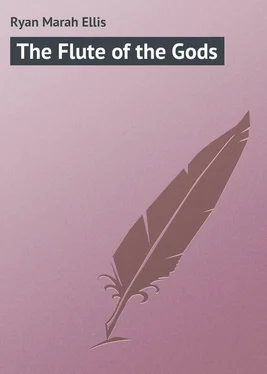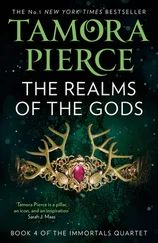Marah Ryan - The Flute of the Gods
Здесь есть возможность читать онлайн «Marah Ryan - The Flute of the Gods» — ознакомительный отрывок электронной книги совершенно бесплатно, а после прочтения отрывка купить полную версию. В некоторых случаях можно слушать аудио, скачать через торрент в формате fb2 и присутствует краткое содержание. Жанр: foreign_prose, на английском языке. Описание произведения, (предисловие) а так же отзывы посетителей доступны на портале библиотеки ЛибКат.
- Название:The Flute of the Gods
- Автор:
- Жанр:
- Год:неизвестен
- ISBN:нет данных
- Рейтинг книги:3 / 5. Голосов: 1
-
Избранное:Добавить в избранное
- Отзывы:
-
Ваша оценка:
- 60
- 1
- 2
- 3
- 4
- 5
The Flute of the Gods: краткое содержание, описание и аннотация
Предлагаем к чтению аннотацию, описание, краткое содержание или предисловие (зависит от того, что написал сам автор книги «The Flute of the Gods»). Если вы не нашли необходимую информацию о книге — напишите в комментариях, мы постараемся отыскать её.
The Flute of the Gods — читать онлайн ознакомительный отрывок
Ниже представлен текст книги, разбитый по страницам. Система сохранения места последней прочитанной страницы, позволяет с удобством читать онлайн бесплатно книгу «The Flute of the Gods», без необходимости каждый раз заново искать на чём Вы остановились. Поставьте закладку, и сможете в любой момент перейти на страницу, на которой закончили чтение.
Интервал:
Закладка:
She was very tiny, and she spoke imperfectly, but shyness was not a part of her small personality, and she insisted on making herself understood. To Tahn-té she seemed like a boy rather than a girl, and he called her Pa-ah-dé which is the Te-hna word for “brother”–and later he gave her to his mother to keep her out of the way of the horses and the strange men.
And thus it was that Tahn-té, and Apache Yahn saw together the strange visitors from the south, and Yahn, though but a baby, thought they might be hunters whom it would be as well to hide from, and Tahn-té thought much of the coats of mail, and how lances could be made to pierce the joints.
He heard the name of the man with the black robe and the magic thing of white leaves from which he talked–or which talked to him!–it was “Padre”–there was also another name and it was “Luis.” It meant the same as “Father Ho-tiwa” or “Brother Tahn-té.”
To the man from whom the rakish Spanish soldiers bent the knee and removed the covering from the head, Tahn-té felt no antagonism as he did for the men who carried the arquebus and swords. The man who is called “Father” or the woman who is called “Mother” with the Indian people, is a person to whom respect is due, and through Bigote he had heard–by keeping quiet as a desert snake against a wall–that the man of the grey robe who was called “Father” was the great medicine-man of the white tribe. Through him the god of the white man spoke. In the leaves of the white book were recorded this god’s laws, and even these white men who were half gods, and had conquered worlds beyond the big water of the South, and of the East, bent their knees when the man of the robe spoke of the sacred things.
Of these things he spoke to his mother, and was amazed to learn that she knew of the white man’s gods, and the white men’s goddess. Never had she talked to him of this, and she did not talk to him much now. She only told him that all she knew would belong to him when the time came, and that the time seemed coming fast–but it was not yet. When he was older he could know.
When he talked to her of the many white pages in which the white god had written, she told him that much wisdom–and strong magic must be there. The white men had no doubt stolen for their earth-born god the birth story of Po-se-yemo, the god of her own people. But his magic had been great in that land across the seas and that people had written words of the earth-born god as had certain tribes of Mexico, and all that the god said and did had been written plainly as had been written the records of Quetzel-coatle of the South, and it was not good that their own tribe had not the written records of their gods.
“It may be that the time has come to make such records,” said Tahn-té, “our people should not be behind the other people.”
“We have no written words,”–said his mother;–“our head men who govern have only the deerskin writings of Ki-pah the wise, who lived long ago and did much for the people of Kah-po and Oj-ke, and the people of the river.”
“Of him I have not heard,” said Tahn-té–“was he a god?”
“No–no god, but he lived and worked as a god. He came to this land before the day of my grandfathers. When the time is come, the men of my father’s people will tell you the work he did in our valley, and what he said. So will tell you the old men of Provi-whah and the old men of Kah-po. He came to a land, not to one people, and on the deerskin he painted things never seen but by the wise men who know how to read it.”
The boy stared moodily into the sun swept court of Ua-lano. There were so many things in the world of which no one had ever told him!
“If I am very good, and say very many prayers, and wait on the gods very carefully, will the wise men of the medicine orders tell me of the deerskin records some day?” he demanded.
“Some day–it may be so,” she conceded.
“Good! I will think of that each day as the sun comes up!” he stated. “And the magic of the white man’s writings I will learn for myself. It is a thing which is not kept for sacred places, and no prayers are needed for that!”
The woman of mystery regarded him strangely, yet spoke no word. The magic of the white conquerors was wonderful magic to her, yet she could not ask her son why he only spoke of them as ever beyond some wall which they must not cross,–and of their knowledge as strong knowledge, yet not sacred knowledge.
Between the woman and her son there was often a wall of silence. Even her love could not cross it. There were always spoken or unspoken questions which she left without answers. He was only learning this in the wonderful journey of the desert lands, and he asked fewer questions,–but looked at her more. And:–she knew that also!
The man of the talking white leaves, and the grey gown set in the center of the court a white cross, and all the soldiers knelt, and in front of the dwellings the brown people knelt also–which the Christians deemed a special dispensation that so many heathen had been brought so quickly to their knees at the mere sight of the holy symbol. And in the morning Father Luis decided he would baptize all of them, and have a high mass for the salvation of their souls. The boy who watched the book so closely, was, he felt sure, a convert at mere sight of the white leaves, and the heathen mother would no doubt clamor also for sanctification.
But in the early dusk of the morning the boy and his mother were on the trail for the home valley of the river P[=o] – s[=o]n-gé of which he had dreamed. With them were people of Kah-po, and people of Provi-whah and the Apache woman and her child Yahn. Yahn made some one carry her most of the hard trails, and talked much, and asked many things of the little growing trees in the old urn of ancient Tusayan.
And when they came in sight of the sacred mesa, Tuyo, a runner was sent ahead to tell the governor and the head men of the strange new people of the clanking iron at Ua-lano, and the wonderful and belated home-coming of the lost woman of many years’ mystery.
Because of this they were met at the edge of the mesa by many, and the Woman of the Twilight knelt and touched the feet of the governor and asked that the gate of the valley be open to her and to her son. And Tahn-té knelt also and offered the growing things.
“These are sacred things of which the Ruler must speak,” said the governor. “I am but for one short summer and winter, but the Ruler is for always. Of the new things to bear fruit we still speak in council,–also of the new people trading a new white god for blue stones, and painted robes.”
But Tahn-té knew that a welcome was theirs, for the governor would not have come outside the walls except it had been so, and the old man watched keenly the delight of the boy as the river of that land came clear before him spread at the foot of the wide table land, and the great plain below. Trees grew there, and between them the running water shone in the sun. The Black Mesa Tuyo, Mesa of the Hearts, arose from the water edge,–a great dark monument of mystic rites, and wondrous records of the time when it had been a breathing place for the Powers in the heart of the earth. The rocks were burned so red it always seemed that the fire was still under them. And south was the God-Maid mesa:–its outline as the face of a maid upturned to the sky.
Beyond the river stretched the yellow corn fields–the higher land like a rugged red skeleton from which the soil had been washed,–and beyond that was the great uplift of the pine-clad mountains where the springs never failed, and the deer were many.
Wild fowl fluttered and dove in the waters of the river, grey pigeons flew in little groups from the trail; as they walked, two men in canoes caught fish where a little stream joined the big water of P[=o] – s[=o]n-gé–in every direction the boy was conscious of a richer, fuller life than any he had yet seen. His mother was right–her people were a strong people! and their villages were many in the valleys of the river.
Читать дальшеИнтервал:
Закладка:
Похожие книги на «The Flute of the Gods»
Представляем Вашему вниманию похожие книги на «The Flute of the Gods» списком для выбора. Мы отобрали схожую по названию и смыслу литературу в надежде предоставить читателям больше вариантов отыскать новые, интересные, ещё непрочитанные произведения.
Обсуждение, отзывы о книге «The Flute of the Gods» и просто собственные мнения читателей. Оставьте ваши комментарии, напишите, что Вы думаете о произведении, его смысле или главных героях. Укажите что конкретно понравилось, а что нет, и почему Вы так считаете.












